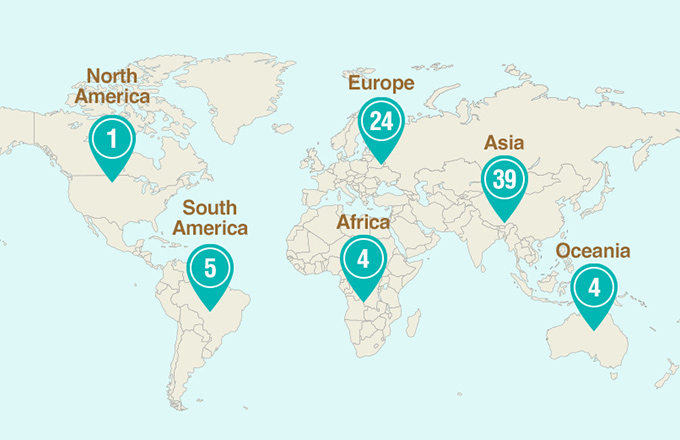China's listed real estate enterprises expected to face challenges
A report from the China Index Academy has revealed the country's listed real estate enterprises are set to face big challenges in both sales and financing this year, due to tightened real estate measures.
More companies have turned to traditional financing channels, which include bank loans, medium-term notes and trusts instead of corporate bonds, according to a report released by the China Real Estate Top 10 Research group, a research team under the academy.
According to the report, an increasing number of real estate companies look for overseas financing channels to prevent the squeezed capital flow. It also revealed overseas financing has grown 308 percent year-on-year in the first quarter of 2017, which was 169.3 percent than the previous quarter.
The following year will further have a higher capital risk for some small and middle sized listed real estate companies, as the result from the difficulty in selling houses in some hotspot cities or third and fourth-tier cities which these companies mainly focused on, the report stated.
Ouyang Jie, senior vice president of Hong Kong-listed real estate enterprise Future Holdings, said sales will keep a single-digit increase in the second half of 2017 due to a possible slight growth in housing price, even though the growing pace of real estate increment slowed down.
He added the government also had begun to regulate the real estate market in the first and second-tier cities of China, which will lead to a slump in real estate sales and a drop in the average price in eight of those cities.
"Third and fourth-tier cities, where housing price grow too fast, will also be regulated", he said.
Ouyang added real estate companies should also increase the capital reserve by promoting financing and reducing participation in buy-back, division or purchasing shares, and adjust the investment structures.
According to the report, the average gross asset of the top 10 Shanghai and Shenzhen-listed Chinese real estate companies reached 323.3 billion yuan ($46.9 billion) by the end of 2016. The result was 6.34 times higher than the amount achieved for 2015. The average net profit also grew 7.32 times to 9.58 billion yuan year-on-year.
The report further revealed the top 10 Hong Kong-listed companies had a 3.36 and 1.92 times increase in the average total asset and net profit, respectively.



















